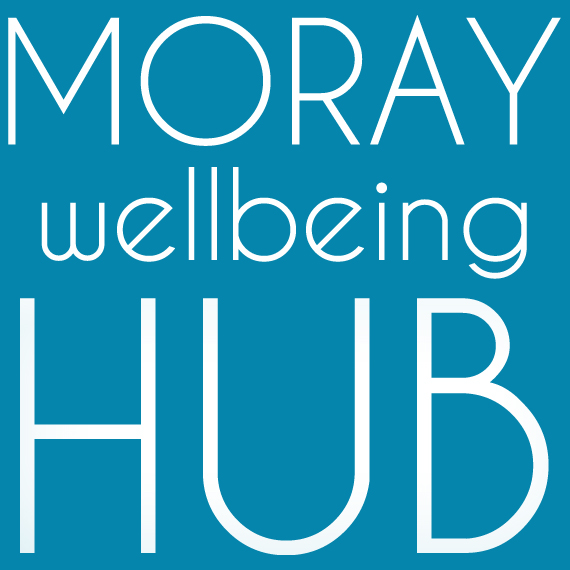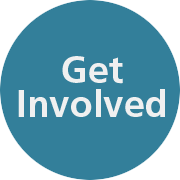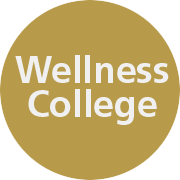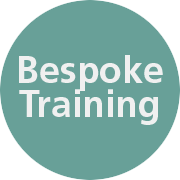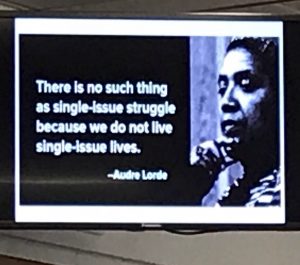
Focus at the event was to remind us that challenges with addiction and mental health are not seperate
The Alexander Graham Bell conference centre at Moray College UHI has rarely seen such a packed audience for a strategically focused event, especially considering the theme of drugs/ alcohol and mental health and the stigma surrounding this. As a Champion working strategically to create change and as facilitator for the event, I was delighted to see a really packed and diverse audience with many fellow Champions attending bringing their many ‘hats’ or roles in the community in to the room – challenging the labels of ‘service user’, ‘lived-experience’ and ‘worker’ as separate.
Pam Gowans, Chief Officer Health & Social Care Moray, welcomed those attending and set the picture for why this event was so important. “This is about people; most of us will have interacted with alcohol at some time in life, most of us will have had challenges in our mental health. This is about us…we all have lived experience of some sort and experiences of destruction at some point in our life, we can draw from this.
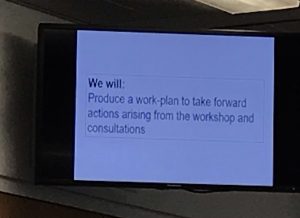
Commitment to take the feedback from the event and make change happen
Today is about self-evaluation, how good are we in Moray? Be quite critical and recognise our best history as well… we can always do better. Using this time to soul search and do a self-evaluation, all opinions in this room are valid.”
Paul Johnstone from Moray ADP (Alcohol Drugs Partnership) gave us a grounding in the key issues of the day and the evidence background;
- awareness of that for those with coexisting issues (both having mental health issues and challenges in alcohol/ drug use) people can fall through the gaps if services are not joined up
- stigma is a key issue
“The sigma cannot be understated for those accessing support in services, and that is why we are here today.”
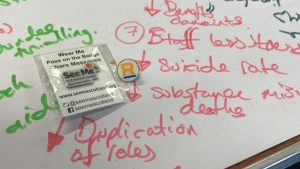
Side by side battling stigma: badges of support from both mental health and addiction recovery
Four questions were then explored at the tables, at the one I was on the two stand out themes we chose to feedback were;
- start a real conversation to find out what people, those that use a service, workers and community members like families, really want – their own genuine ‘outcomes’ / what a full life looks like to them
- collaborative working at all levels to help us see from diverse viewpoints and perspectives – for example ‘walking in someone else’s shoes’ Help us to move beyond judgement and be genuine.
“If you’ve never picked up a methadone prescription from a chemist then perhaps go with someone sometimes and experience what that is like”.
Other feedback from the room looked at;
- getting the ‘feeling’ right and focusing on how services, communities and people work together as we are all humans with health that changes
- not having to repeat the story and retraumatising people
- having easy, collocated access to services and supports but not calling it ‘drugs/alcohol or mental health services’
- The counsellors in the room fed back about things needing to have a truly person-centred approach and to put in place trauma counselling at places like A&E and schools, plus support for workplaces to offer enough support for people not just 4 sessions.
- Peer support made mainstream not just in certain communities but everywhere.
- Benefits systems being a massive negative impact.
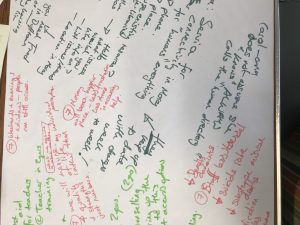
Notes from our table discussions show exciting ideas
It was a very full and powerful day and gave me a few ideas to take back to Moray Wellbeing Hub about future action we can explore to support the community around these issues;
- how we can support the community to feel confident to support i.e. café owners, pub landlords, shop owners, taxi drivers – with training and ongoing support
- increasing awareness of the social movement as Champions to encourage more folk who are linked in via the alcohol/drugs lived experience
- wide publicity of the tools we have managed to create in Moray, like the pathways for mental health, that can help to signpost anyone to supports
